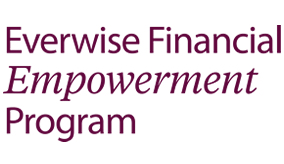Basic Budgeting
Are you or your family living right up to your income?
Going a bit beyond your income to make ends meet—running up credit card debt or dipping into savings.
If so, you are not alone.
At least 47% of U.S. households spend all of their income (or go beyond) according to a new report based on national data and prepared by the Pew Charitable Trust.
If you find yourself in this situation—or close to it—it's time to pause and look for new ways to cut spending and enhance saving.
If you find yourself in this situation...
...or close to it—it's time to pause and look for new ways to cut spending and enhance saving. >> Check this out >>
Having Even a Small Emergency Fund Can Put You and Your Family on a More Secure Financial Footing.
Below are some tips to help.
Some steps you can take today, others require a little more planning.
Quick First Steps for Saving
Next,
Saving Steps That Take a Little Planning or Effort
First:
Saving on Utilities.
Sounds boring, maybe. But the benefits aren't!
Check out this Podcast... Bonus!
___

Drew & the Gang
Drew & the Gang - Saving on Utilities Podcast
Saving on Utilities Podcast (Special Edition)
Put in Some Effort
Alright. That was fun. For us more than for you, maybe, but follow these tips below, and you'll get your income vs. expenses under control in no time!
Eat this....
Make Your Meals at Home
We Americans spend about 50% of our food dollars on food eaten or prepared away from home. That figure includes both the meals we eat out in restaurants or prepared meals and foods we pick up.
Making meals at home can save big bucks!
Ways to ease the time required include:
- Plan meals ahead
- Shop only once weekly
- Always using a list
- Preparing foods ahead on weekends and some evenings
- Involve the whole family
Success also means continuing to enjoy some meals out and some take-out.
Comparison Shop
I'm sure you comparison shop when you're in the grocery store, when you're shopping for a new gadget, or new vehicle. Right?
You can also comparison shop for other services such as your TV package (cable or satellite), mobile phone service, and auto insurance.
By taking time to get quotes from providers other than the ones you currently use, you may be able to negotiate a better deal from your current providers because they don't want to lose you as a customer.
More on this in the impulse buying section!
Get Your Finances Straight
Next, you should get control over why things may not be working out for you financially. Chances are, it is not because you earn too little, but because you spend too much, and have the wrong spending habits, to boot.
Start by improving your financial habits. Let's get going on your budget...
Create a Budget
And Stick to It!
This is probably the hardest step but also the most effective for helping you cut costs and save more.
The goal is to find out where and how you are spending money and where you can spend less by creating a personal budget.
Follow these steps, and create financial stability for yourself:
1. Figure out Your Income
Write down all your means of income, from your daytime job, to your independent contractor salary, to your pocket money and your dog-walking gig.
2. Pay Yourself First!
Most experts, like FoolProof, say you should make saving at least 10% of your monthly income a serious priority
Build an emergency fund to cover 3-6 months of your normal expenses; say you lose your job or get injured and cannot work, this buffer can help you get through the gap in income.
Set savings goals! Try to set short-term goals as well as long-terms goal and notice how (rewarding) it feels to save your way towards your target goal, and have that financial buffer for a chance!
3. Track Your Spending!
The expense side of your budget typically lists items such as housing, utilities, food, insurance, and transportation. It also lists loan payments such as car or student loans, as well as your credit card bills. Don't forget to list all your app payments either (or payment app income under #1).
-
This worksheet from the Federal Trade Commission (FTC) can help you look at your monthly income and expenses.
4. Cut Your Spending
Listing all of your expenses in a budget can help you identify areas where you can cut spending, as reducing your spending can free up money for saving and paying down debt. For example, save money by packing your lunch and preparing breakfast and dinner at home. You may find other savings by asking yourself these questions.
What do you need in a phone plan? Are you paying for more than you need?
What are you paying for cable/satellite TV and Internet plans? Can you access your favorite sports and shows through a cheaper streaming service instead?
How much do you spend each week on miscellaneous expenses? Would giving yourself a weekly cash allowance help you reduce that spending?
Are there other areas where you can find savings?
Note: We don't recommend giving up everything! Having nothing allotted for "fun" in your budget makes it more likely to fail.
5. Stick to Your Plan, and Make It a Habit to Review Your Budget
Now you have that control, keep it. Live within your means, and adjust your numbers whenever your financial picture changes (such as receiving a raise or paying off a loan or credit card).
Maximizing Your Budgeting Skills...
FoolProof has an entire interactive module on budgeting.
If you even think you have the slightest trouble creating or sticking to your budget, use FoolProof's tools!
Create an account and start our "Burning Money" module now.
Additional Resources:
America Saves has lots of tips and information to help increase savings in many areas.
Budgeting Tools from the Institute for Financial Literacy
The Benefits of Saving More Matter!
Often when we think about saving, we think about giving up something.
But actually, making a budget or a spending plan that helps you live within your income and save some money for future needs helps you gain more.
You increase your ability to meet emergencies and to plan for purchases and activities you really want.
You also gain peace of mind.
Ok, Now You Know Your Income vs. Expenses
Need a little extra cash to make ends meet?
Here are some ideas...




